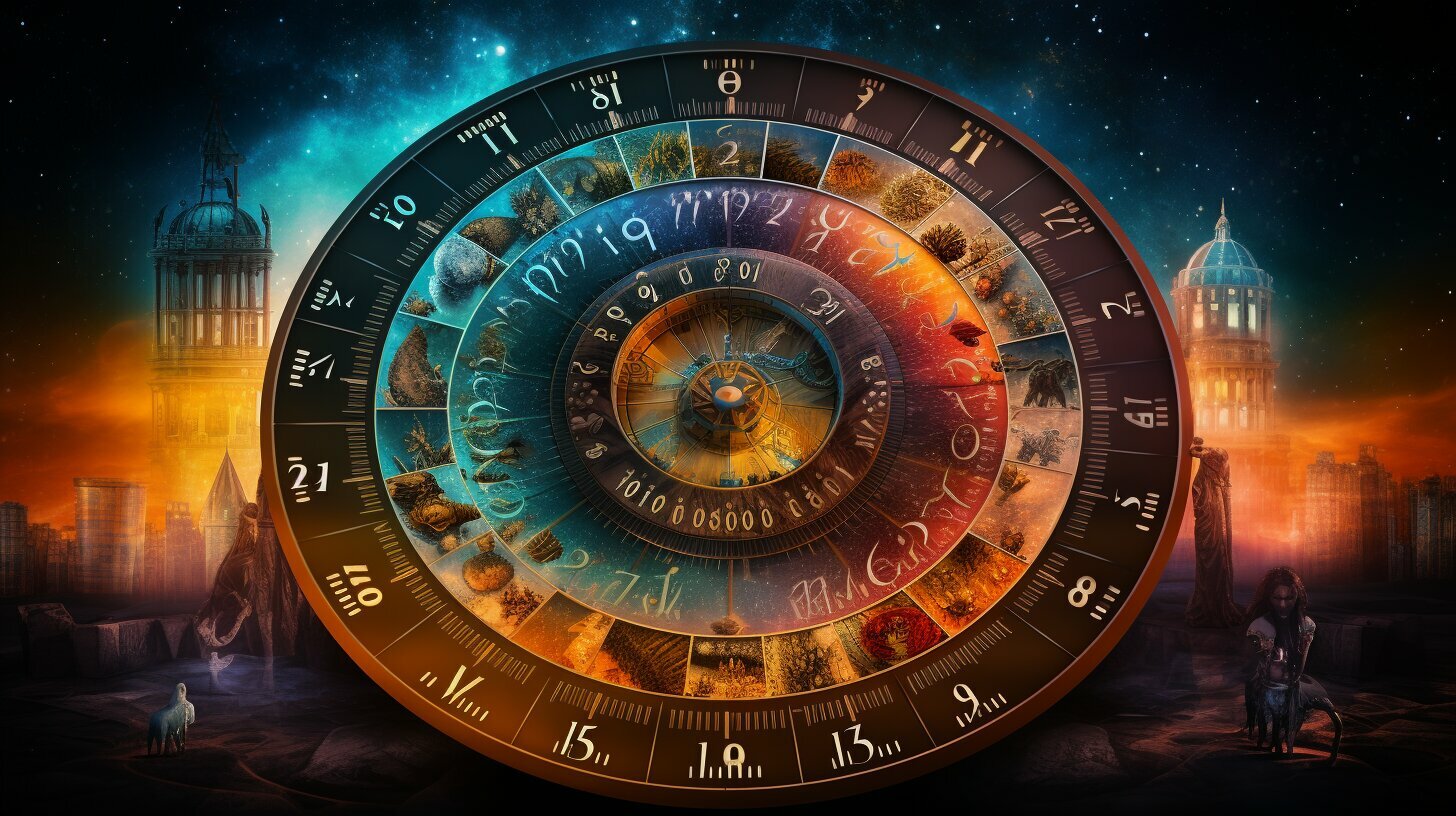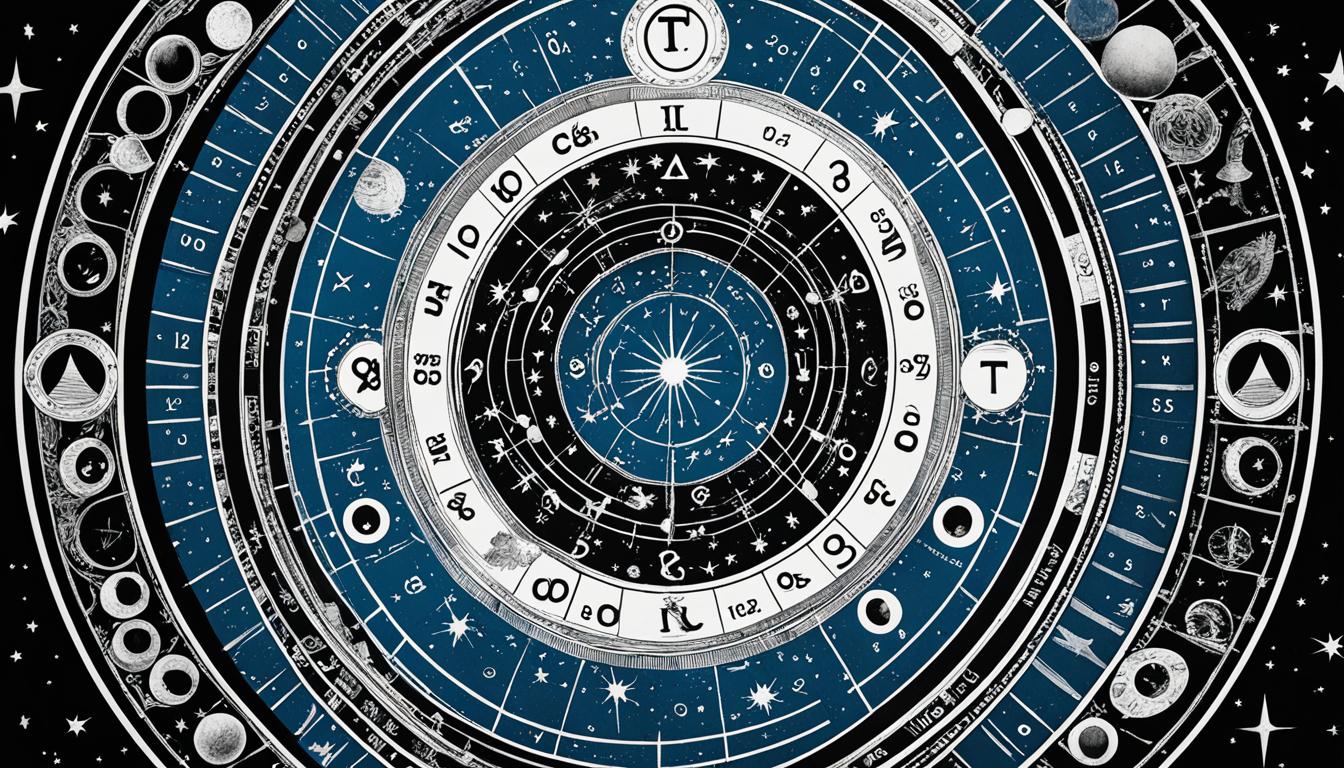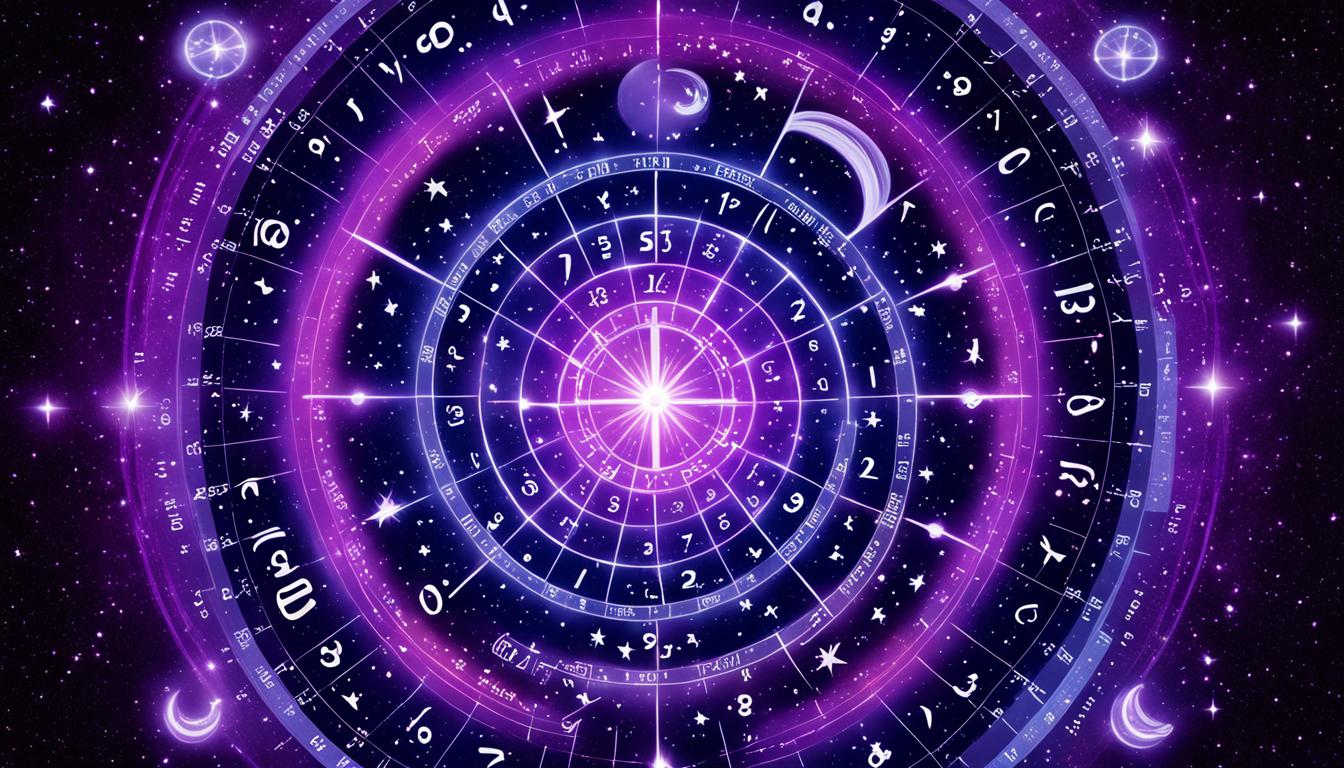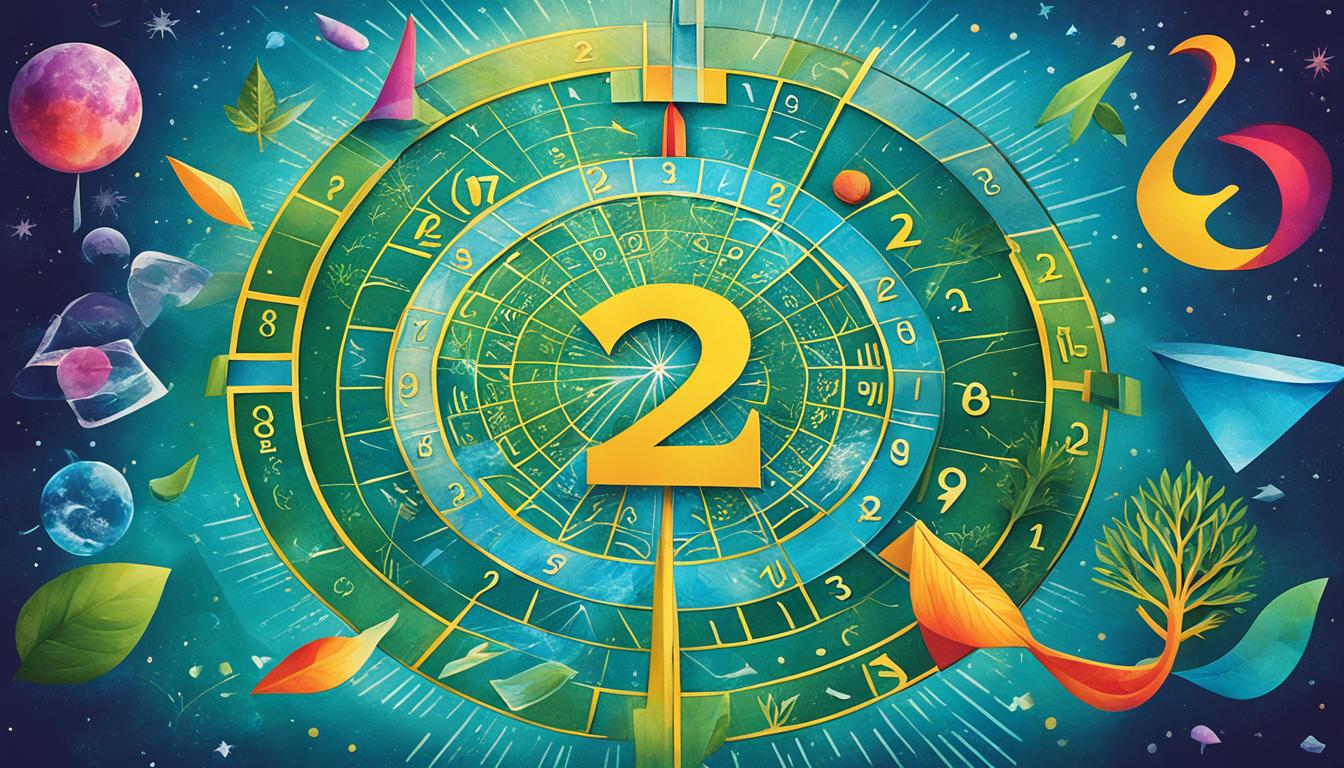As a copywriting journalist, I’ve always been fascinated by the power of numbers and their influence on our lives. One of the most intriguing phenomena that I’ve come across is numerology, which suggests that numbers have mystical and symbolic meanings that can reveal hidden truths about our personality traits, life events, and even our destiny.
However, the question that remains is, is numerology scientific? Many skeptics have dismissed it as pseudoscience, lacking empirical evidence and the rigorous methodology required to meet the scientific standard. In this article, I’ll explore the origins of numerology, its core principles, and its scientific validity, if any. Let’s take a deeper look.
Key Takeaways:
- Numerology is the belief in the mystical and symbolic significance of numbers in human life
- Numerology lacks scientific evidence and is considered a pseudoscience by the scientific community
- Although numerology may provide some value as a tool for self-reflection, it should not be relied upon as scientific fact
The Origins of Numerology
Numerology is not a modern concept; in fact, its origins can be traced back thousands of years to ancient civilizations such as Babylon, Egypt, and Greece. These cultures believed in the mystical properties of numbers and their ability to influence human life.
In Babylon, numerology was closely tied to astrology and played a significant role in predicting future events. Egyptians used numerology to decipher the meaning behind names and dates of birth, while the Greeks believed that numbers held divine power and symbolism.
Over time, numerology has evolved and been incorporated into various belief systems. In India, for example, numerology is closely tied to Hinduism and is used to determine the compatibility of romantic partners. In Chinese culture, numerology plays a role in determining auspicious dates and events.
Despite its long history, numerology remains a controversial topic in the modern era. While some continue to believe in its mystical properties, others view it as simply superstition.
The Core Principles of Numerology
At its core, numerology is based on the belief that numbers hold mystical significance and can reveal insights into human life. Numerologists use a variety of calculation methods to determine these insights, such as adding up the digits in a person’s birthdate or name to arrive at a single-digit number.
The interpretation of these numbers is highly subjective, with different numerologists assigning different meanings to the same numbers. For example, the number 7 may represent spirituality and introspection to one numerologist, while another may view it as a symbol of luck or good fortune.
Despite the widespread use of numerology as a tool for divination and self-discovery, there is no scientific evidence to support its claims. Scientific inquiry depends on empirical evidence, experimentation, and reproducibility, all of which are lacking in numerology.
While some numerologists claim to have evidence to support their claims, the studies conducted on numerology to date have been criticized for their small sample sizes, subjective interpretations, and lack of rigorous methodology. As a result, numerology is not recognized as a legitimate scientific discipline.
However, some individuals find value in numerology as a tool for self-reflection and personal growth. It is important to distinguish personal belief from scientific fact and to approach numerology with a critical mind.
Numerology and the Scientific Method
As a professional journalist, I must emphasize the importance of the scientific method in determining the validity of any claim. Numerology, unfortunately, does not meet the criteria required for a scientific discipline.
The scientific method requires empirical evidence, experimentation, and reproducibility. Numerology, on the other hand, relies on subjective interpretations, lacks a standardized methodology, and has not been proven through repeatable experiments.
Moreover, numerology does not make predictions with a high degree of accuracy, which is a fundamental requirement in science-based fields.
For these reasons, numerology is not recognized as a legitimate scientific discipline. Rather, it is considered a pseudoscience, a belief system that is not grounded in empirical evidence or methodologically sound practices.
It is important to approach all belief systems with a critical eye and rely on evidence-based practices when evaluating claims.
Scientific Research on Numerology
Despite the popularity of numerology, scientific research on this subject is limited. The few studies that have been conducted often suffer from methodological flaws, small sample sizes, and subjective interpretations, which undermine the reliability and validity of their findings. One study published in the Journal of Social Psychology in 1980 claimed to find a positive correlation between the birth date of subjects and their self-reported personality traits, but subsequent attempts to replicate this study have yielded mixed results.
Another study published in the Journal of Psychology in 2005 investigated the relationship between numerological factors and academic performance in college students. The researchers found no significant correlation between numerical patterns and GPA, suggesting that numerology may not be a predictive tool for academic achievement.
While these findings may be intriguing to some, they cannot be used as conclusive evidence to support the scientific validity of numerology. As with any scientific inquiry, rigorous methodology and replication are essential for establishing the reliability and validity of research findings. Until such evidence-based research is conducted on numerology, it cannot be considered a scientifically validated discipline.
Numerology Debunked
As much as some people believe in the mystical significance of numbers, there is a lack of evidence-based support for the validity of numerology. While the practice has been around for thousands of years, scientific research has not backed up the claims made by numerologists.
One of the main issues with numerology is that it is not based on the scientific method and lacks empirical evidence. Numerologists rely on subjective interpretations of numbers rather than objective data, and their predictions are often vague and open to interpretation.
“One of the main issues with numerology is that it is not based on the scientific method and lacks empirical evidence.”
Another issue with numerology is the lack of consistency and reproducibility. Different numerologists may give different interpretations of the same numbers, and there is no standardization of calculation methods or interpretation guidelines. This makes it difficult to test and compare numerological claims in a scientific manner.
Furthermore, numerology often relies on logical fallacies such as confirmation bias and cherry-picking of evidence. Numerologists often focus on instances where their predictions have come true, while ignoring instances where they have not. This selective memory reinforces their belief in numerology while ignoring the cases where it has failed.
The Scientific Validity of Numerology
After exploring the origins, core principles, and research on numerology, it is clear that it lacks scientific validity. The scientific method requires empirical evidence, experimentation, and reproducibility. Numerology falls short in meeting these criteria and is considered a pseudoscience by the scientific community.
While numerologists may claim to have evidence supporting their beliefs, this evidence is based on subjective interpretations and logical fallacies. Additionally, any scientific studies conducted on numerology have limitations and criticisms, such as small sample sizes and a lack of rigorous methodology.
It is important to recognize the distinction between personal belief and scientific fact. While numerology may provide some individuals with a sense of comfort or insight, it should not be relied upon as a substitute for evidence-based practices. Critical thinking and the use of evidence-based methods are crucial when evaluating belief systems.
Despite its lack of scientific validity, numerology continues to be popular in modern society. It is important to question why some individuals are drawn to numerology and to encourage the use of evidence-based practices in all aspects of life.
Numerology and Science: Exploring the Divide
As a copywriting journalist, I strive to offer a balanced perspective on controversial topics. When it comes to numerology, it’s clear that scientific evidence is lacking. However, I do acknowledge that some individuals find value in using numerology as a tool for self-reflection.
While numerology does not meet the criteria for scientific validity, it can still serve as a way to prompt self-awareness and self-discovery. By examining numerical patterns and the symbolism associated with numbers, one may gain insights into their personality traits, life events, and future possibilities.
It’s important to note that numerology should not be relied upon as a substitute for evidence-based practices or professional therapy. Rather, it can serve as an additional tool for personal growth and discovery.
As with any belief system, it’s crucial to maintain a level of critical thinking and skepticism. While numerology may offer some insights, it’s important to question and evaluate the validity of its claims.
In conclusion, while numerology lacks scientific validation, it can still offer some value as a tool for self-reflection. As individuals, we must choose to strike a balance between personal belief and scientific fact, and use numerology as just one of many tools for personal growth and discovery.
The Role of Numerology in Modern Society
Despite its lack of scientific validity, numerology continues to maintain a significant presence in contemporary society. Many individuals are drawn to numerology as a means of gaining insight into their lives or seeking guidance for important decisions.
Some people find comfort in the idea that their birth date or name holds a special significance, while others appreciate the symbolism and meaning associated with various numbers. Numerology may also serve as a source of inspiration for artists or writers, who use numerological concepts in their works.
It’s important to remember that while numerology may have personal significance for some, it should not be used as a substitute for evidence-based practices or scientific thinking. The reliance on subjective interpretations and cherry-picking of evidence can lead to faulty conclusions and potentially harmful decisions.
As a society, we must prioritize critical thinking and the evaluation of claims based on empirical evidence. While numerology may hold a place in some individuals’ belief systems, it is not recognized as a legitimate scientific discipline and should not be considered as such.
Conclusion
After exploring the truth behind numerology, it is clear that the practice is not based on scientific evidence. While numerology has historical roots and continues to be popular in contemporary society, it falls short of meeting the requirements of the scientific method.
As I wrap up this article, I want to encourage critical thinking and the importance of evidence-based practices. It is important to approach belief systems with a discerning eye, especially when they are presented as factual and scientific. At the same time, I acknowledge that some individuals find value in using numerology as a tool for self-reflection and personal growth. It is important to distinguish between personal belief and scientific fact.
In conclusion, while numerology may hold spiritual significance for some, it is not recognized as a legitimate scientific discipline. It is crucial to rely on empirical evidence and critical thinking in evaluating belief systems and practices. Let’s continue to question and explore the world around us.
FAQ
Q: Is numerology scientific?
A: Numerology is not considered a scientific discipline.
Q: What are the origins of numerology?
A: Numerology has historical roots in ancient civilizations such as Babylon, Egypt, and Greece.
Q: What are the core principles of numerology?
A: Numerology involves the significance of numbers, calculation methods, and interpretation of numerical patterns.
Q: How does numerology relate to the scientific method?
A: Numerology does not align with the scientific method due to a lack of empirical evidence and reproducibility.
Q: Is there scientific research on numerology?
A: Limited scientific research has been conducted on numerology, but it has been criticized for various shortcomings.
Q: Can numerology be debunked?
A: Numerologists’ claims can be challenged with logical explanations and alternative perspectives.
Q: What is the scientific validity of numerology?
A: Numerology is not scientifically validated and is regarded as a pseudoscience.
Q: Can numerology be used for self-reflection?
A: While lacking scientific validity, some individuals find value in using numerology as a tool for self-reflection.
Q: What is the role of numerology in modern society?
A: Despite its lack of scientific substantiation, numerology remains popular and accepted by some individuals.
Q: Is numerology a scientific discipline?
A: Numerology is not recognized as a legitimate scientific discipline.



